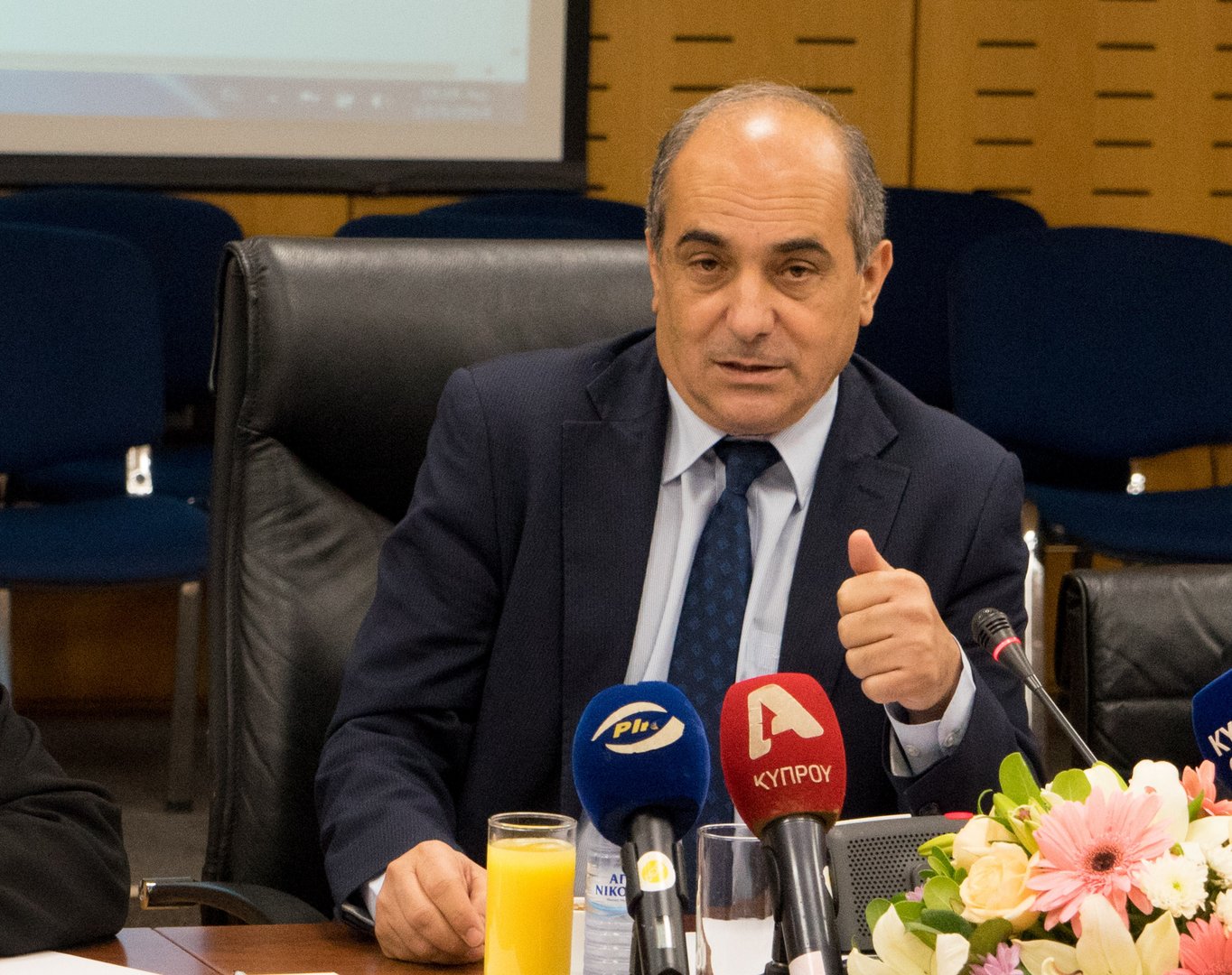Τhe two former MPs facing criminal charges over a report by Al Jazeera into the alleged illegal naturalisations of people as citizens of the Republic of Cyprus, commonly known as the ‘golden passports scandal’, were on Wednesday called upon by the Nicosia criminal court to state the case for their own defence.
Former House president Demetris Syllouris and former Akel MP Christakis Giovani are both facing charges including conspiracy to subvert the Republic and influencing a public official, in violation of the laws criminalising corruption.
At the end of the day’s proceedings, the court ruled that the case had been “proven prima facie” – meaning that the accusations against the pair have merit and cannot simply be dismissed – and thus called on Syllouris and Giovani to “present their defence”.
Syllouris’ lawyers requested time to decide whether he will testify in court, while Giovani’s lawyers said he at present does not intend to give any sworn testimony, and that they intend to call “at least four” witnesses.
Earlier in the hearing, lawyers representing the pair had attempted to convince the court not to proceed with the case, with defence lawyer Chris Triantafyllides telling the court that it must “consider whether with what it heard, if the proceedings were to end today, taking into account the accusation, it could convict them beyond all reasonable doubt”.
He added that if the court finds that cases against the pair cannot be proven beyond all doubt, they should not be asked to plead, as being asked to plead in those circumstances would constitute being asked “to fill in gaps in the prosecution’s testimony”.
“In your task of judging whether you have enough material to reach a verdict, assumptions are not allowed as to the existence of facts, and gaps leave the accusation open to rejection,” he said.
He then made reference to the testimony given by police officer Giorgos Argyrou, who had told the court that in the four and a half years which he spent charged with protecting Syllouris, he had never heard him speak about the citizenship through investment scheme.
Likewise, he said, former interior minister Constantinos Petrides had told the court that he had never been called by Syllouris about issues relating to the citizenship through investment scheme, “nor did he receive a visit or a phone call asking for intervention with the aim of accepting a naturalisation application”.
Prosecution lawyer Charis Karaolidou then addressed the court, saying that “it is a given that at this stage, the court does not proceed with an evaluation of the testimony”.
She pointed out that Syllouris had received €200,000 for “providing services” to Giovani’s property company, named the Giovani group, and that Syllouris’ daughter had also received €70,000 as part of a separate deal.
“Testimony was presented that [Giovani] organised events and meals at his home and invited foreign clients, including at least two investors identified by the police, while [Syllouris] participated in the same events and appears in photographs,” she said.
She then added that there was “independent testimony that [Syllouris and Giovani], especially [Syllouris], exploited their positions to promote cases within the framework of the citizenship through investment programme”.
In addition, she said, MPs and the institution of the House presidency “had no jurisdiction or relationship with naturalisation procedures”, and that despite this, Syllouris had contacted the interior ministry’s permanent secretary of the day by telephone “in relation to naturalisation applicants”.
Those applicants, she added, were all “clients of Christakis Giovani”.
She later called on both Syllouris and Giovani to testify “to give their own positions on the issues which arise, should they wish”.
Al Jazeera aired an almost hour-long exposé of the scandal in October 2020, prompting Syllouris and Giovanis to both resign.
In the documentary, undercover reporters played the role of agents acting on behalf of a fictional Chinese businessman with a criminal record, aiming to secure him Cypriot citizenship.
Syllouris, Giovani and others were shown offering to help the man in his quest for citizenship despite his criminal record.
The government of the day then scrapped Cyprus’ citizenship by investment scheme, with the European Union having launched legal proceedings over claims the scheme had been used to sell passports to dubious individuals.
A subsequent inquiry found that 53 per cent of 6,779 citizenships granted through the scheme were unlawful, with the government since having commenced the process of cancelling the citizenship of some naturalised through the scheme.






Click here to change your cookie preferences